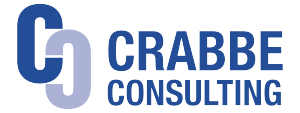Planning of co-operative international multidisciplinary RD&I projects comes with a number of challenges, including: building the right team, focussing on the right objectives and achieving project funding. We help you master these challenges.
RD&I Planning includes to:
- Check the innovation potential of ideas
- Check innovation capacity
- Determine whether your innovation process could be furthered by international RD&I
- Identify whether there is good potential for public co-funding support for the RD&I e.g. under Horizon 2020 (see below)
- Build the right consortium
- Structure projects in terms of realistic and strong objectives (and with a view to the proposal evaluation criteria if public funding is targeted)
- Develop detailed project work plans
- Plan required resources
- Prepare project proposals for public co-funding support e.g. Horizon 2020 (see below)
- Negotiate contracts with funding authorities and project partners
Horizon 2020 short summary:
The Horizon 2020 program of the European Union is one way in which international research, development and innovation (RD&I) projects can be co-funded.
The Horizon 2020 program has a budget of EUR 80 billion for the period 2014-2020. Project proposals may be submitted to obtain part of this budget in a number of activity and thematic areas.
Horizon 2020 has three main pillars:
- “Excellent Science” (scope for science-driven (basic) research)
- “Industrial Leadership” (enhancing of economic competitiveness)
- “Societal Challenges” (tackling of the pressing issues for the European citizen)
These three main areas are complemented by additional assistance measures: Spreading Excellence & Widening Participation, Science with & for Society, European Institute of Innovation and Technology (EIT) and Euratom.
Each of these thematic areas are broken down into further detailed topics. Most RD&I projects are submitted in requests for proposals under one of the topics.
The Horizon 2020 program is open in principle to most legal entities in the world. To obtain direct funding a legal entity must however generally be registered in an EU country, in a country associated to the programme or in a third party country. Most projects particularly those for RD&I contain numerous international partners but must have at least three independent partners from three different countries.
Information provided by the European Community on Horizon 2020 may be found at: http://ec.europa.eu/programmes/horizon2020/en/what-horizon-2020
